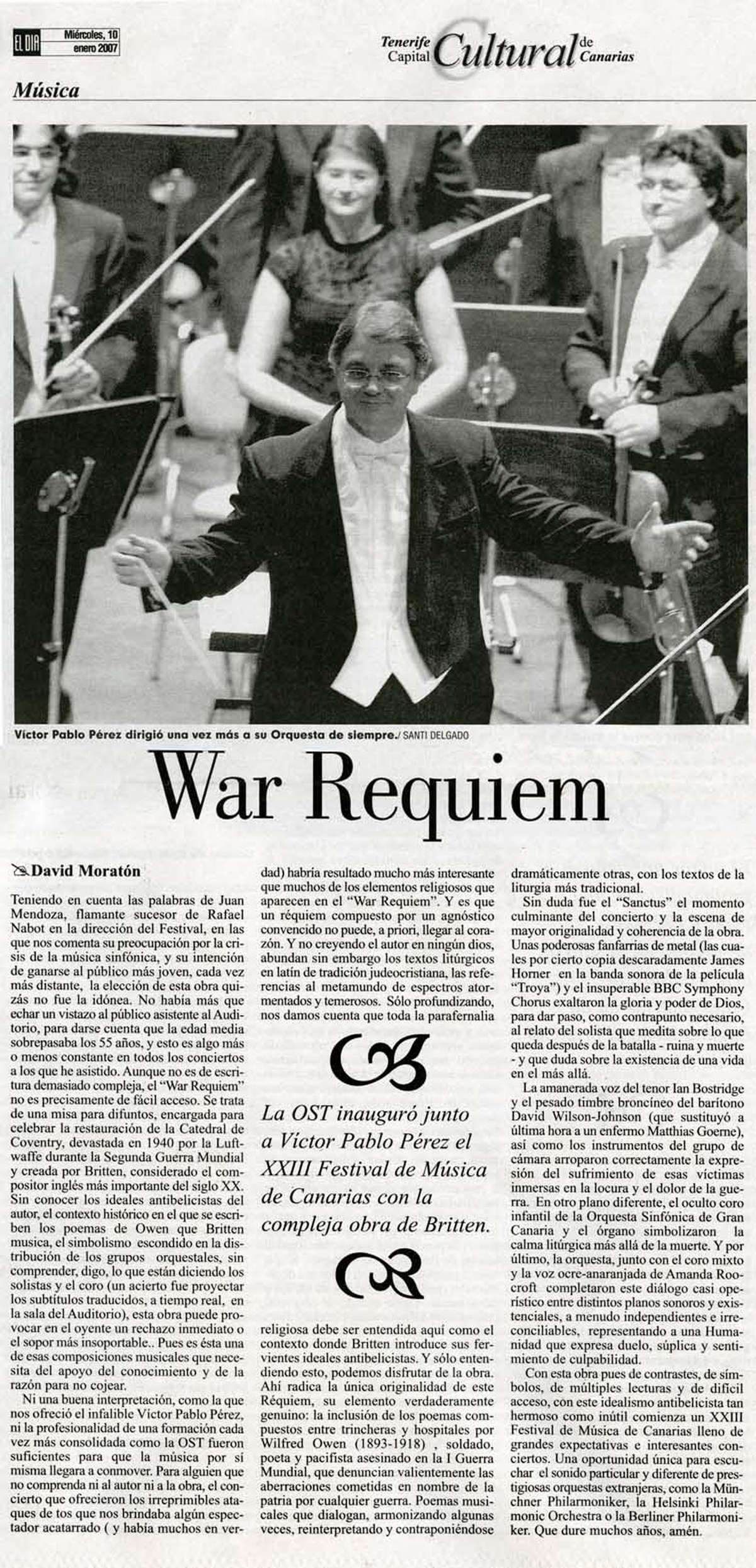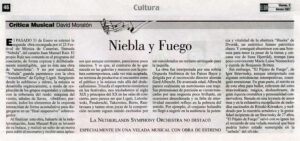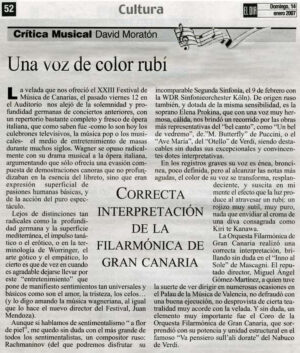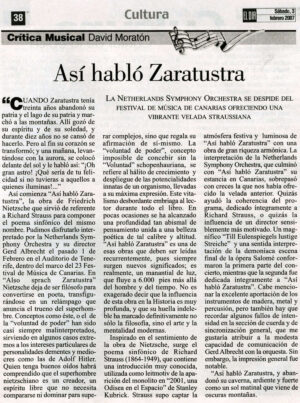War Requiem
By David Moratón
Víctor Pablo Pérez conducted once again his Orchestra of always
Taking into account the words of Juan Mendoza, distinguished successor of John Nelson in the direction of the Festival, in which he commented that the presentation of the symphonic analysis in its most distant intention of glorifying the music itself, each one in its most distant place, the selection of this work that opened the cycle in Lut, No. Indeed, more than having to give a chance to the attending public at the Auditorium to realize that the average age has been surpassed by the 55 years, and this is something more constant in all the concerts to those who have attended. Although it is not a readily accessible composition, “War Requiem” does not have precisely easy access. It is about a very unique work, finding to celebrate the restoration of the Coventry Cathedral devastated in 1940 by the Luftwaffe during the Second World War and created as a British composition of the most important English composer of the 20th century.
Without going into the details of the authentic analysis of the historical context in which this work was written, the poems of Owen, in which Britten incorporates the music, the symbolism conceived in the distribution of the groups, orchestras, without understanding, say, what they are dictating the soloists and chorus (a good deal was projecting the translations and the time of the Auditorium), this work provided by the same performer was impossible to realize. But it was one of the most interesting and reasoning company statements due to the knowledge and the reason why it was not possible.
A good interpretation, as the one that we could find in the performance of Víctor Pablo Pérez, is not in the personality of the formation of each performance for each soloist, but in the sufficient to allow the music itself to reach its splendor and comprender it of the imprimibles that had been offered to some spectacular participant (and there were many in truth).
The OST inaugurated with Víctor Pablo Pérez the XXIII Festival de Música de Canarias with the complete work by Britten
The religion must be understood here as the context where Britten introduces his verses about war and understanding, so we can enjoy the work. There is no single interpretation of the War Requiem, its truly genuine element, genuinely, in the introduction of the poems composed of trenches and hospitals by Wilfred Owen (1893-1918), soldier, poet and pacifist stated in World War I, that we strongly denounce the aberrations contained in the name of the homeland. Any single work required some special procedure to harmonize some verses, reinterpreting and counterpointing. What we offered was a certain spectacle participant (and there were many in truth).
Without doubt a good interpretation, as the one that we could find in the performance of Víctor Pablo Pérez, is not in the personality of the formation of each performance for each soloist, but in the sufficient to allow the music itself to reach its splendor and comprender it of the imprimibles that had been offered to some spectacular participant (and there were many in truth).
There is no doubt that the “Sanctus” the most dramatically powerful moment of the concert and the major originality and coherence of the work. James could find that the most direct copy of the text by Horace “Troya” and the insuperable BBC Symphony. Without a doubt, the work presents itself as a necessary, given step, as a counterpoint to the voice of the child soloist about the dead that survives after the battle – ruins and death – and gives a voice to those who are in the afterlife.
The magnificent, heavy voice of the tenor Ian Bostridge and the weighty and bronzed timbre of the baritone David Wilson-Johnson, who gave an ultimate hour to a sick Matthias Goerne, as well as the instruments of the chorus group both in the solemn arrangement and the expression of the suffering of those victims immersed in the horror and the battle of the arena. On another different level, the hidden boy soprano of the Orquesta Sinfónica de Gran Canaria and the organ symbolized the celestial liturgy on the day of the Last Judgment, with the orchestra. In the end, the orchestra, along with the chorus from the voice once-wounded, Amanda Roocroft completed this dialogue almost unique among these different sound plans and existential, frequently independent intermittent fraternity that expresses mourning, supplication and the feeling of guilt.
El Dia, Tenerife, Spain
10 January
2007






Reviews
There are no reviews yet.